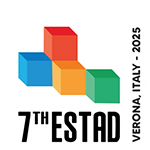Speaker
Description
The advent of artificial intelligence (AI) in industrial settings has accelerated due to its potential to enhance operational efficiency. However, scholars have increasingly highlighted the automation-augmentation paradox, wherein AI’s capacity to optimize processes simultaneously threatens human expertise and decision-making autonomy. While paradox theory has explored this tension conceptually, empirical research remains scarce.
This study employs an inductive, qualitative approach—primarily interviews triangulated with field observations and surveys—to investigate the drivers of this paradox in a labor-intensive sector: the foundry industry. The research focuses on Alchimia, an AI system developed under the EU Horizon 2020 project to optimize production efficiency, lower costs, and improve environmental performance (e.g., reducing energy consumption and carbon emissions). Data were collected in Spring 2023 from a foundry in Northern Italy.
Findings reveal three interlinked tensions that sustain the automation-augmentation paradox in labor-intensive sectors:
(1) Technical Robustness vs. Safety – While automation boosts efficiency, workers stress the need for backup processes (e.g., power outages), highlighting the tension between trusting AI’s capabilities and ensuring human oversight in critical operations.
(2) Procedural vs. Tacit Knowledge – Alchimia’s structured, data-driven logic collides with the experiential intuition of skilled workers, raising concerns about the loss of contextual adaptability. While procedural standardization can reduce variability, workers insist that AI should augment rather than override human judgment in complex decision-making.
(3) Advancing vs. Preserving Expertise – AI promises efficiency but risks subverting expertise heretical order. Workers argue that Alchimia must enhance, not replace experiential knowledge, ensuring automation complements skilled labor rather than making it redundant. The challenge is balancing progress and human proficiency without eroding long-cultivated expertise.
This research elucidates the hidden tensions sustaining the automation-augmentation paradox. Additionally, it informs ALTAI principles, offering policymakers a framework for ensuring AI deployment remains ethically sound, equitable, and human-centered.
